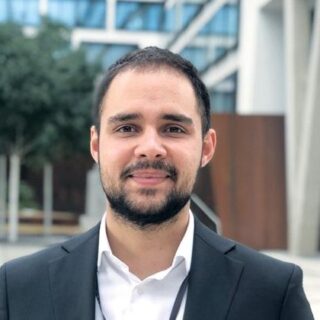
Dr Teodor Blidaru, MD
Health Policy Advisor, Romania
Dr Teodor Blidaru is a Romanian doctor, contributing to health policy and healthcare innovation. Recently, he took on the role of Project Coordinator for the Health Innovation Hub of Romania. This new initiative, a partnership between public and private sectors, aims to foster innovation in healthcare policies and technologies, particularly to enhance Romania’s abilities in clinical trials and health promotion.
Dr Blidaru is deeply interested in healthcare public policy, with a focus on planning, developing human resources for health, and managing healthcare systems. He currently serves as an Honorary Advisor to the Minister of Health. In this capacity, he is working on significant projects, including creating Romania’s first strategy for health workforce development, enhancing healthcare management education, and engaging with a broad range of stakeholders both in Romania and internationally, including the WHO.
Dr Blidaru is a radiology and medical imaging physician, educated at Carol Davila University of Medicine and Pharmacy in Bucharest. He is also pursuing a PhD in Medicine and building a career in teaching at the same university. Beyond his studies and teaching, Dr Blidaru is involved in the university’s administration, managing projects related to international relations.
Civically, Dr Blidaru recently led the resident doctors’ committee at the Romanian College of Physicians and served on the board of the Romanian Multidisciplinary Society of Resident Doctors. He played a key role in initiatives aimed at enhancing the training programs for Romanian doctors.
In the past, particularly in 2019 and 2020, Dr Blidaru was selected as the United Nations Youth Delegate for Romania and attended numerous international events, including the UN General Assembly. He was also the first student to join the Romanian delegation at the World Health Assembly. Before this, he was active in the International Federation of Medical Students’ Associations and various NGOs, taking on leadership roles and focusing on student representation and building networks among young professionals at the local, national, and international levels.
Prof Sandra C. Buttigieg is a Professor and Head of the Department of Health Systems Management and Leadership, Faculty of Health Sciences at the University of Malta. She is a Consultant in Public Health Medicine, Head-Clinical Performance Unit, and Chair-Patient Safety and Quality Improvement Team, at Mater Dei Hospital. She is President of the European Health Management Association. She lectures in HSM, Public Health, Family Medicine, Research Methodology and Evidence-based Health Research (EVBRES).
She authored/co-authored several articles in peer-reviewed international journals, and widely participated in international conferences, and congresses. She is on the Editorial Boards of PloS One, Health Services Management Research, International Journal of Human Resources Management, Journal of Health Organization and Management, and Frontiers Public Health. She is Frontiers Topic Editor: “Network for Evaluation of One Health (NEOH) Case Studies”; “Patient Safety: Delivering Cost-Contained, High Quality, Person-Centered, and Safe Healthcare” and “Health Service Management and Leadership: COVID-Style”.
She is a Fellow of two programmes of the Salzburg Global Seminar, related to health care, which were led by amongst others, past presidents of the Institute of Medicine, namely, Donald Berwick and Harvey Fineberg.
Professor Buttigieg has been visiting scholar in the US (JMU -Harrisonburg, VA), UK -University of Birmingham and Aston University, Birmingham, and Kuwait (Faculty of Allied Health Sciences, Kuwait University).
Josep Figueras, MD, MPH, PhD (econ), FFPH is the Director and cofounder of the European Observatory on Health Systems and Policies. In addition to WHO, he has served major multilateral agencies such as the European Commission or the World Bank and has worked as policy advisor in more than forty countries within the European region and beyond. He was Co-chair of the Scientific Advisory Board of the Monti Commission, and member of several governing, advisory and editorial boards including the governance board of the European Health Forum Gastein.
He is an honorary fellow of the UK faculty of public health; received the Andrija Stampar Medal for excellence in Public Health and a Doctorate Honoris Causa from Semmelweis University; and he has three times been awarded the EHMA prize for best annual publication. He is currently a visiting professor at the London School of Economics and Maastricht University. He was director of the MSc in Health Services Management and lecturer at the London School of Hygiene & Tropical Medicine. Dr Figueras obtained his PhD from the University of London LSE / LSHTM in 1993 on health policy and planning. He started his career as a specialist in Family and Community medicine in Spain.
Prof Scott L. Greer is a Professor of Health Management and Policy, Global Public Health, and Political Science (by courtesy) at the University of Michigan and is also a Senior Expert Advisor on Health Governance for the European Observatory on Health Systems and Policies.
He researches the politics of health policies, with a special focus on the politics and policies of the European Union and the impact of federalism on health care. Before coming to Michigan, he taught at University College London. He has published over a hundred book chapters and articles in journals including the Lancet, British Medical Journal, Milbank Quarterly, American Journal of Public Health, Social Science and Medicine, Journal of European Public Policy, Journal of European Social Policy, and Journal of Health Politics, Policy and Law. His most recent books include Everything you always wanted to know about European Union health policies but were afraid to ask (2014, second edition 2019, third edition forthcoming), Strengthening health system governance: better policies, stronger performance (2015), Federalism and Decentralization in European Health and Social Care (2013), European Union Public Health Policies (2013), Civil Society and Health (2017), Federalism and Social Policy (2019), The European Union after Brexit (2020), The Populist Radical Right and Health (2021) and Coronavirus Politics (2021).
Prof Catherine Keller is a hospital director and doctor in health law. She has held various positions in public health establishments (Medicine, Surgery, Obstetrics and Mental Health). She led a large inter-hospital cooperation project. Before joining the EHESP to teach hospital law, she also worked as an administrative magistrate, in charge of hospital litigation.
Prof Federico Lega, PhD, is a Full Professor of Health Administration at the Public Health Department at Milan University, where he runs all courses in healthcare management and policy for medical students and leads the Research Centre in Health Administration (HEAD).
He is also a Professor at SDA Bocconi School of Management (SDA) where he teaches courses in Public Management and Health Services Management. He leads the research in strategy and organisational development in healthcare at the Bocconi Research Center on Health Policy and Management (CERGAS). From 2007 to 2014 he has been the Head of executive education for health managers, clinicians and medical industry leaders at the Bocconi School of Management (SDA).
Since 2015, he is acting as Editor in Chief of the journal Health Services Management Research, Associate Editor of BMC Health Services Research and Medical Care Research Review. He has published eight books and over 150 articles in journals.
As a consultant, he has advised health systems on health policy matters and governance issues, several hospitals and networks in re-organisations, strategy-making processes, value-based approaches, economic evaluations, and process management, both at the national and international level.
In the last ten years, he has advised several companies in the medical industry on their transformation toward value-based models and on the development of effective market-access initiatives. Since 2002 he has coordinated over fifteen initiatives of duality or study tours, involving the exchange of managers and senior clinicians between countries (Italy, UK, USA, Germany and France). He currently sits on the boards of hospitals and local health authorities, advises health departments of regions, national health agencies and insurances, and works as a consultant for WHO.
Federica Morandi is Professor of Management at Università Cattolica del Sacro Cuore, Faculty of Economics, Department of Management Studies. She obtained a Ph.D. in Economic and Management of Healthcare Organizations, at Università Cattolica del Sacro Cuore. Since 2020 she is the Director of the Academic Programs in Altems (Graduate School of Economic and Management of healthcare systems) at the same university. She is also Responsible for the research activities of Patient Advocacy Associations Lab and Clinical Trial Management Lab at Altems.
She received two awards for research activities from the Academy of Management (2011) and from the Assioa (Italian association of organization studies), (2010).
She has been a visiting scholar (short term) at ISCTE-IUL Lisbon (Portugal) and at the Tillburg University (Holland) at the Department of Organization Studies- School of Social Behavioural Sciences.
Her research interests focus both on organizational models in healthcare and on healthcare workforce.
Federica Morandi co-authored more than 30 scientific papers both in international and national peer-reviewed journals and about 10 book chapters. She is also author of a monography entitled “Managerial solutions to hospital challenges” edited by Nova Science Publishers, 2016.
Federica Morandi is coeditor of a book series dedicated to the healthcare management and she is associate editor at Health Service Management Research journal.
Federica Morandi has given a large number of presentations at International and National Conferences.
Tuomo Nieminen serves as the Chief Medical Officer in the Wellbeing Services County of Päijät-Häme, Finland.
Previously, he has been a professor of internal medicine at the University of Helsinki, Finland.
Dr. Diana-Loreta Păun is a distinguished figure in the realm of healthcare and medical research, with a multifaceted career spanning clinical practice, education, management, and advisory roles. With a strong focus on endocrinology, she has significantly contributed to the advancement of medical knowledge and patient care, both in Romania and on the international stage.
Since 2019, Dr. Diana-Loreta Păun has held the position of Presidential Advisor for Health to the President of Romania, having been promoted from the position of State Advisor for Health after a four-year mandate.
She has had with the close support of President Iohannis a leading role in Covid-19 national coordination and containment mechanisms.Recently she has had a pivotal role in launching a strategic National Cancer Plan in Romania, under the leadership of President Iohannis.
Within the mandate, the Romanian official coordinates the Department of Public Health, a structure within the Presidential Administration that contributes to the mediation functions between the decision-makers in the field of public health.
An endocrinologist by profession, Dr. Păun served as the head of the National Institute of Endocrinology “CI Parhon” between 2006 and 2015. She is associate professor of Endocrinology at the University of Medicine and Pharmacy “Carol Davila” and has pursued complementary studies in Health Services Management and in several areas such as management, quality audit, and public procurement.
Professor Alexandru Rafila has been appointed Minister of Health of Romania on 25 November 2021.
He held different key leading positions, such as Vice-President of the Romanian Parliament, Secretary of State, Director General for Public Health and personal advisor to the Minister of Health. He has also served as Director of the Institute of Public Health in Bucharest. Alexandru Rafila is the elected president of the Romanian Society of Microbiology and Professor at the University of Medicine and Pharmacy “Carol Davila”.
He attained his medical degree in 1987 and his PhD in microbiology in 2004. Professor Rafila is an expert internationally recognised, who worked with WHO, NATO and the European Commission. He played a key role as a member of the Standing Committee of the WHO Regional Office for Europe and represented Romania in the Management Board of the European Centre for Disease Prevention and Control. In 2018, he was elected to represent Romania in the Executive Board of the WHO.
Professor Rafila is an active organizer and participant in national and international medical conferences and events on public health topics. He wrote articles, textbooks, book chapters and practice guidelines in the field of public health and microbiology.
Jaume Ribera is Emeritus Professor in the Operations, Information and Technology Management Department and Director of the Center for Research in Healthcare Innovation Management at IESE Business School in Barcelona.
He holds an M.Sc and a Ph.D. in Mathematical System Theory from the University of Florida and an Dr. Eng. in Industrial Engineering from the Polytechnic University of Catalonia. He has hold visiting positions in China, Argentina, Ecuador, Peru, Uruguay, Kenya, etc.
He has been active in consultancy in supply chain management, project management, and health management with private and public companies in different industries. He serves on the board of several charities, public entities, and private companies.
Julie Spony is Policy Officer at the European Patients’ Forum (EPF), the voice of patient organisations in Europe. In this role, she contributes to EPF’s policy and advocacy work, including leading EPF’s activities on the revision of EU pharmaceutical legislation.
Julie has a multidisciplinary background in Law, Economics and Political Science and holds a Master’s degree in European Affairs from Sciences Po Lyon (France).
Prior to joining EPF, Julie worked at the European Commission and the European Parliament, focusing on rule of law and human rights.
Dr. Ștefan Strilciuc is the Director of the Research Center for Functional Genomics, Biomedicine and Translational Medicine (genomics-center.ro) at the Iuliu Hatieganu University of Medicine and Pharmacy.
As Associate Research Professor, his work lies at the intersection of public health and medicine, having been involved in over 50 interventional and observational clinical trials and studies, including economic evaluation in health.
Strilciuc is also an advisor to the Romanian Health Minister and has served as an international expert for central healthcare institutions such as the National Health Insurance House, actively contributing to healthcare reform and management of an annual health budget of over €10 billion.
As a member of the Romanian Health Observatory, he has also contributed to designing and disseminating original research reports and advocacy plans for patients in Eastern Europe.
Dr Marius-Ionuț Ungureanu, MD, PhD is a medical doctor with extensive training in healthcare management and policy, and a background in health workforce, health systems & public health research.
He is currently serving as Chair of the Department of Public Health, and Director of the Center for Health Workforce Research and Policy, both within the School of Political, Administrative and Communication Sciences at Babeș-Bolyai University (BBU) in Cluj-Napoca, Romania. He has served in Government in various capacities, including as Advisor to the Health Minister, Chief of Staff to the Health Minister, and Deputy Health Minister, in the Romanian Ministry of Health.
His main areas of expertise are: human resources for health research, policy, and development; leadership & healthcare reform; quality management in healthcare; health services research; primary and community health care; research design; research management. Dr. Ungureanu is a member of European Public Health Association’s (EUPHA) Governing Board, representing BBU’s Department of Public Health, and President of EUPHA’s Health Workforce Research Section.
As a health systems researcher, Eva desires to find and implement safe and sustainable healthcare delivery models globally through co-creation and smart technologies and digital solutions.
She has 15 years experience in health systems research, currently working as Senior Researcher at the Centre for Digital Health and Social Innovation at the University of Applied Sciences. Her main task is to build a research group in Inclusive Digital Community Care. Prior to taking up the position in January 2023, she worked at the Institute for Health and Society, University of Oslo, on IMI2 projects Gravitate Health and BEAMER project. Eva, is also an associate professor working on task shifting, digital health, ethics in AI and digital health literacy at the University of South- Eastern Norway.
Her research has been focused on person centred care, digital health, patient safety, health technology assessment and quality of life. She teaches EBM, HTA and Public Health at the Medical Faculty, University in Maribor and is Public Health delegate with the Emergency Response Unit at the Norwegian Red Cross.
Eva serves in the Board of Directors of HTAi, is Board member of Polytekniske Forening- Helse, Women in Global Health Norway and Austria, and was a member of the Expert Council at the Slovenian Digital Health Innovation Lab.
She holds an MBA in Healthcare Management (WU Wien) and a PhD in Health Sciences (University of Oulu). Originally from Slovenia, she has studied, lived and worked in Austria, Japan, Finland, Spain, Argentina, Syria and Norway.
Apart from the healthcare expertise, Eva is passionate about the sustainable development and the SDG’s, in particular SDG 5, Gender Equality. As the President of Professional Women’s Network Norway, she was contributing to raising awareness about gender balanced leadership.
Cristian Vladescu graduated in 1988 from the Faculty of Medicine at UMF “Carol Davila” in Bucharest, with a PhD in Medicine in 2000 and a MPH from the Nuffield Institute of Health, University of Leeds, UK in 1993. He also attended numerous postgraduate courses in public health, health economics, epidemiology, health policy, health management in UK, USA, France, Spain. He is Professor in Public Health and Management since 2002, Head of Public Health Discipline, UMF Victor Babes, Timisoara (2002-2020), Associate Professor, University of Bucharest, Faculty of Sociology and Social Work (1995 – 2018); Visiting Scholar of Health Policy, Wagner School for Public Service, NYU (1994, 2007) and is currently Professor of Public Health and Management at the Faculty of Medicine, Titu Maiorescu University, Bucharest and General Director, National School of Public Health and Management, Bucharest.
Prof. Cristian Vladescu is full member of the Romanian Academy of Medical Sciences. During his career he fulfilled numerous positions in his areas of expertise such as : General Director, Directorate for Reform, Ministry of Health (1997-1998), Executive Chairman, Center for Health Policy and Services (1999-2004);President of the Public Health Commission of the Ministry of Health, (2005-2006); President of the National Health Insurance House (2005-2007), Chairmen of the Presidential Commission for the analysis and elaboration of public health policies (2007-2008), President of the National Commission for Attestation of University Degrees, Diplomas and Certificates (CNATDCU) in Medicine, Ministry of National Education (2010-2012), President of the Commission for Clinical and Epidemiological Management of COVID-19 of the Ministry of Health (2021-2022) together with membership in various other professional societies in Romania and abroad.
Prof. Cristian Vladescu authored and co-authored over 50 books and treatises, published more than 100 scientific articles in indexed journals, gave over 40 presentations in international conferences and participated in more than 35 research projects, both national and international. His work has over 2.000 citations in international scientific data bases (BDI). Prof. Vladescu acted as consultant/expert for international organizations such as WHO, The World Bank, Council of Europe, EU, USAID, Global Fund, OSI. He received for his professional and academic activity different awards and distinctions such as the Romanian Academy Award Iuliu Haţieganu in 2010, Diploma of Excellence of the Ministry of Interior in 2005 in Bucharest, Diploma of Excellence of the Ministry of Defense in 2006 in Bucharest, USAID / AIHA Certificate of Recognition in 1998 in Chicago, USA.
Gemma Williams is a member of the Observatory’s London hub and is based at the London School of Economics and Political Science.
Before joining the Observatory, Gemma worked as a Research Officer at LSE Health and as an ODI Fellow Health Economist in the Rwandan Ministry of Health.
Dr Tomas Zapata is a health services and health workforce expert with more than 13 years of experience in policy advice, research and programme implementation, including long term international work with WHO, UNFPA and Doctors of the World based in Mozambique, Angola, Namibia, Bangladesh and India. He has also conducted several analyses focusing on integration of services, primary health care, health workforce policy and health labour market analysis among others in African, Asian and European settings.
For the past two years he is leading the Unit of Health Workforce and Health Services in the WHO Regional Office for Europe based in Copenhagen.
Dr Tomas Zapata graduated as a Medical Doctor and he specialized in Family Medicine in Spain. He holds a Master’s degree in Health Policy, Planning and Financing from the London School of Hygiene and Tropical Medicine (LSHTM) and the London School of Economics (LSE), and a specialised short course on Human Resources for Health by Harvard School of Public Health in Boston, USA.
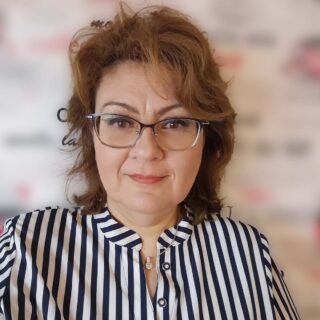
Family Physician and President, Bucharest Family Physicians Association, Romania

Global Advisor, International Federation on Ageing (IFA), Canada

Survivor and Public Advocate, Motivational Speaker, Author, Course Creator, Switzerland
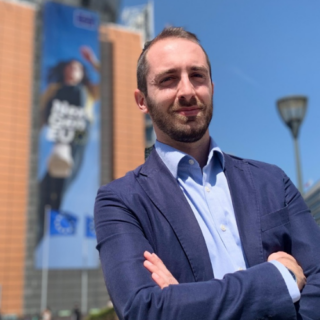
Director, EUREGHA – European Regional and Local Health Authorities, Belgium
He has a Bachelor’s degree in Political Science from Wilfrid Laurier University and a joint Master’s degree in Health Economics and Management from the Erasmus University Rotterdam, University of Oslo, University of Bologna and Management Centre Innsbruck. A former paramedic, Zach is interested in the delivery of emergency health services and health system considerations for underserved regions and populations.
Dr. Jovin is an expert in the interventional and non-interventional treatment for the entire spectrum of stroke and cerebrovascular disorders. He was one of the nation’s first interventional neurologists, a medical subspecialty that uses minimally invasive technologies applied from within the vessels to diagnose and treat diseases of the arteries and veins of the head, neck, and spine such as acute stroke, carotid stenosis, intracranial aneurysm, and arteriovenous malformations.
In addition to his clinical experience, Dr. Jovin is known internationally for his research activities. He has served as principal investigator for several international clinical studies including REVASCAT, a randomized trial of endovascular therapy versus medical therapy for acute stroke within eight hours of symptoms onset conducted in Spain, and DAWN, a multicenter, international, randomized trial of endovascular therapy versus medical therapy in the beyond eight-hour time window. Both studies are considered landmark studies in the development of treatments for acute stroke and have been published in the New England Journal of Medicine. He is a member of the executive or steering committees for several multicenter national and international trials, and has participated as site principal investigator or co-investigator in multiple national and international trials.
Additionally, he serves as editorial board member for numerous medical journals. Dr. Jovin has published more than 300 articles in peer-reviewed journals or book chapters. The consequential nature of his research is evidenced by recently published studies that have identified Dr. Jovin as the highest impact author in the neuro-interventional field.
Prior to joining Cooper, Dr. Jovin was a professor of neurology and neurosurgery at the University of Pittsburgh School of Medicine and director of the Center for Neuroendovascular Therapy at the University of Pittsburgh Medical Center (UPMC). At UPMC, he also served as the director of UPMC’s Stroke Institute, one of the leading centers for stroke care, education, and research in the world.
Prof Todorka Kostadinova was born on 20 October 1960 in Dobrich, where she graduated from ‘Geo Milev’ Language High School, German and English Language Teaching. She has two Master’s degrees from the University of Economics – Varna (Economics and Pedagogics) and a PhD from the University of National and World Economy, Sofia (2001). The title of her dissertation thesis is ‘Opportunities for Portfolio Management of Medical Institutions’.
Her academic career has been further developed by successive appointments as an Extraordinary Associate Professor at the Department of Economics and Health Care Management at MU-Varna (2002), Associate Professor of the same Department (2003) and Professor – in 2012 in the scientific speciality ‘Organisation and Management outside the Sphere of Material Production’. She has two specialities in the field of healthcare: ‘Health Economics’ (2005) and ‘Medical Informatics and Health Management’ (2006).
She delivered lectures as a guest lecturer in a Master’s Programme in Health Management at the University in Bern, Switzerland (2005 – 2006) and Medical University – Vienna (2009-2011). From 2008 to 2011 she was a member of an international research team at Berkeley University, after specialising in Leadership in healthcare at the same University (Global Health Leadership Forum at Berkeley, www.ghlf.org).
She has specialised in the following areas: Hospital Management at the University Hospitals in Zurich and Bern, Switzerland, Restructuring and Organisation of University Education in Health Management at the University of Maastricht, the Netherlands and the University of Manchester, the UK; Health Policy, Financing and Management in Healthcare at George Washington University and Georgetown University, the USA (2003-2004). After her specialisation, she was elected member of the academic staff of the Department of Global Health at the University of George Washington (2004-2009).
Within the period 2009 – 2013, Prof Kostadinova combines academic work with management positions at various levels as a parliamentary secretary at the Ministry of Health (2009), Deputy Minister of Health (2009 – 2010), a member of the Control Board (2009) and Supervisory Board (2010) of the National Health insurance Fund (NHIF), Sofia, a coordinator for Bulgaria of the International Network for Health in South-Eastern Europe (2009-2010), a member of the National Commissions and Committees on European Politics – at the Foreign Ministry of the Republic of Bulgaria, on ethnic issues – at the Ministry of Interior Affairs, Chairman of the National Council on Food Safety at the Ministry of Health (2009-2010), Deputy Minister for International Cooperation, Public Health, including work with the Global Fund to Fight AIDS, Malaria and Tuberculosis, European programmes and projects, Electronic Healthcare.
In March 2011, she was elected Dean of the Faculty of Public Health at MU-Varna and remained in this position for a year, and since March 2012 she has been a Vice-Rector for International Cooperation, Accreditation and Quality.

President, European Interdisciplinary Council on Ageing, Italy

Interim Executive Director, European Health Management Association, Belgium

Executive Director, Romanian Cancer Society; Babes Bolyai University, Romania
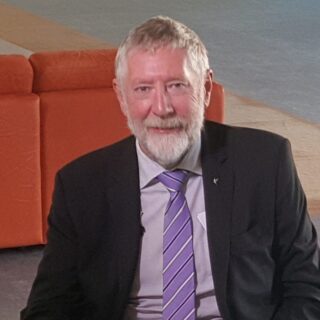
Chair, International Immunization Task Force; Past President, World Federation of Public Health Associations (WFPHA), Australia

Partner, Vintura, The Netherlands
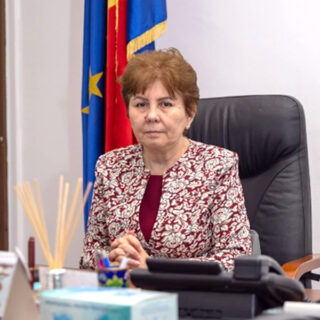
Secretary of State, Ministry of Health of Romania; Former Director of the National Institute of Public Health, Romania
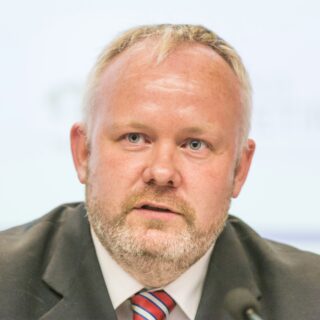
Chief Executive, International Longevity Centre – UK (ILC – UK), United Kingdom
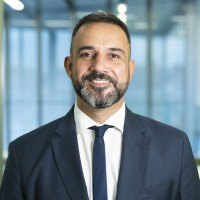
Lead for Practice Transformation, International Pharmaceutical Federation (FIP), Spain

Manager, Vintura, United Kingdom

Head of Image Guided Therapy, VP, Philips Europe, United Kingdom

Policy Officer, European Health Management Association, Belgium
Dr Tomas Zapata is a health services and health workforce expert with more than 13 years of experience in policy advice, research and programme implementation, including long term international work with WHO, UNFPA and Doctors of the World based in Mozambique, Angola, Namibia, Bangladesh and India. He has also conducted several analyses focusing on integration of services, primary health care, health workforce policy and health labour market analysis among others in African, Asian and European settings.
For the past two years he is leading the Unit of Health Workforce and Health Services in the WHO Regional Office for Europe based in Copenhagen.
Dr Tomas Zapata graduated as a Medical Doctor and he specialized in Family Medicine in Spain. He holds a Master’s degree in Health Policy, Planning and Financing from the London School of Hygiene and Tropical Medicine (LSHTM) and the London School of Economics (LSE), and a specialised short course on Human Resources for Health by Harvard School of Public Health in Boston, USA.
Prof Sandra C. Buttigieg is a Professor and Head of the Department of Health Systems Management and Leadership, Faculty of Health Sciences at the University of Malta. She is a Consultant in Public Health Medicine, Head-Clinical Performance Unit, and Chair-Patient Safety and Quality Improvement Team, at Mater Dei Hospital. She is President of the European Health Management Association. She lectures in HSM, Public Health, Family Medicine, Research Methodology and Evidence-based Health Research (EVBRES).
She authored/co-authored several articles in peer-reviewed international journals, and widely participated in international conferences, and congresses. She is on the Editorial Boards of PloS One, Health Services Management Research, International Journal of Human Resources Management, Journal of Health Organization and Management, and Frontiers Public Health. She is Frontiers Topic Editor: “Network for Evaluation of One Health (NEOH) Case Studies”; “Patient Safety: Delivering Cost-Contained, High Quality, Person-Centered, and Safe Healthcare” and “Health Service Management and Leadership: COVID-Style”.
She is a Fellow of two programmes of the Salzburg Global Seminar, related to health care, which were led by amongst others, past presidents of the Institute of Medicine, namely, Donald Berwick and Harvey Fineberg.
Professor Buttigieg has been visiting scholar in the US (JMU -Harrisonburg, VA), UK -University of Birmingham and Aston University, Birmingham, and Kuwait (Faculty of Allied Health Sciences, Kuwait University).
Montserrat Codina is Project Lead at the Center for Research in Healthcare Innovation Management at IESE Business School since 2016 where she leads and coordinates several training and health innovation projects.
Her fields of interests are new innovative education models and concepts and how training, capacity building and skills development is to be adapted in the health sector to foster innovation and its adoption. She has previous experience in biomedical research (UAB, Barcelona; TUM, Munich; IMIM, Barcelona), in project management in the area of international training programmes (IDIBAPS, Barcelona) and in competitive funding for European and national health research projects (European Research Projects Office and Project Development Unit– Fundació Clínic).
Montserrat holds a PhD in Biology by Universitat Autònoma de Barcelona and has been Adjunct Faculty at Universitat de Barcelona-Hospital Clinic Campus for 10 years.
Josep Figueras, MD, MPH, PhD (econ), FFPH is the Director and cofounder of the European Observatory on Health Systems and Policies. In addition to WHO, he has served major multilateral agencies such as the European Commission or the World Bank and has worked as policy advisor in more than forty countries within the European region and beyond. He was Co-chair of the Scientific Advisory Board of the Monti Commission, and member of several governing, advisory and editorial boards including the governance board of the European Health Forum Gastein.
He is an honorary fellow of the UK faculty of public health; received the Andrija Stampar Medal for excellence in Public Health and a Doctorate Honoris Causa from Semmelweis University; and he has three times been awarded the EHMA prize for best annual publication. He is currently a visiting professor at the London School of Economics and Maastricht University. He was director of the MSc in Health Services Management and lecturer at the London School of Hygiene & Tropical Medicine. Dr Figueras obtained his PhD from the University of London LSE / LSHTM in 1993 on health policy and planning. He started his career as a specialist in Family and Community medicine in Spain.
Prof Scott L. Greer is a Professor of Health Management and Policy, Global Public Health, and Political Science (by courtesy) at the University of Michigan and is also a Senior Expert Advisor on Health Governance for the European Observatory on Health Systems and Policies.
He researches the politics of health policies, with a special focus on the politics and policies of the European Union and the impact of federalism on health care. Before coming to Michigan, he taught at University College London. He has published over a hundred book chapters and articles in journals including the Lancet, British Medical Journal, Milbank Quarterly, American Journal of Public Health, Social Science and Medicine, Journal of European Public Policy, Journal of European Social Policy, and Journal of Health Politics, Policy and Law. His most recent books include Everything you always wanted to know about European Union health policies but were afraid to ask (2014, second edition 2019, third edition forthcoming), Strengthening health system governance: better policies, stronger performance (2015), Federalism and Decentralization in European Health and Social Care (2013), European Union Public Health Policies (2013), Civil Society and Health (2017), Federalism and Social Policy (2019), The European Union after Brexit (2020), The Populist Radical Right and Health (2021) and Coronavirus Politics (2021).
Dr. Teppo Heikkilä is a health care generalist with a broad insight and understanding concerning all aspects of health care systems and services. He also has some knowledge of social services as well.
He does have a lot of experience in health care development, as well as in leading wide expert and stakeholder networks with strategic targets.
In addition, he does have special knowledge related to topics regarding social and health care administration and organizations, legislation and patient rights, as well as professionalism, education and professional rights.
Prof Axel Kaehne joined Edge Hill as a Senior Research Fellow in April 2013. He was appointed Reader in Health Service Research in 2016 and is currently Editor-in-Chief of the Journal of Integrated Care. He is currently Vice-President of EHMA.
Axel has designed and delivered evaluations of health improvement programmes in England and Wales and is also a member of the Children’s Nursing Research Unit at Alder Hey, the Children’s Hospital NHS Foundation Trust.
He leads the Special Interest Group for Integrated Care of the European Health Management Association and works with colleagues across England to establish an Integrated Care Researcher Network. He is teaching Research Methodologies, Quantitative Approaches and Statistics/SPSS on the MCh and MRes course in the faculty and supervises currently three PhD students and several Master’s students. He is leading a module in Strategic Clinical Leadership and the dissertation module for the MCh (taught) degree.
Justine began her career working in research and development teams in community and mental healthcare services in a variety of roles, including Head of Clinical Governance and Research and Development. She went on to work at the National Institute of Health and Care Excellence (NICE), establishing the QOF and Quality Standards programmes, commissioning and managing the Social Care Guidance programme in partnership with SCIE and most recently as Associate Director for COVID-19 guidance during the pandemic.
Justine also worked for over ten years as Director of a social research consultancy, specialising in ‘hidden populations’, co-producing research and working with local communities to develop assets based approaches to health and social care service design and delivery, including initiatives such as the Royal Society of Arts’ Recovery Capital project. Currently she is Assistant Director of Research at the Health Foundation.
Justine has a PhD from the University of Manchester, exploring the value of cultural activities for social isolation, an MSc (Econ) from the University of Wales, Aberstywth and a PGCE in Adult Education. She is also a member of the Editorial Board of Research Matters.
Prof. Dr. Henrique Martins holds a Medical Degree, Internal Medicine Speciality, a Master and PhD degrees in Management, and a Law Master’s degree, presently doing a PhD in Law. He was one of the first CMIOs in Portugal in 2009-2013 at Hospital Fernando Fonseca, Lisbon. During the years at the Ministry of Health he was responsible for setting the agenda for eHealth in Portugal.
He was president of SPMS, Portugal’s Digital Health Agency for close to 7 years, where he led National eHealth. He represented Portugal for 8 years and was the former Member States co-chair of the EU eHealth Network, the highest policy body on eHealth in the Union.
Elected Fellow of the International Academy of Health Sciences Informatics (within IMIA) in July 2020. He is a National Defence Auditor. Since August 2020 he integrates the HL7 Europe Foundation Board of Directors. He now works as an academic at ISCTE Business School, one medical school (FCS-UBI), and at Korea University Medicine (Visiting professor), teaching and researching in Digital Health, Healthcare Systems and Transformation, Leadership and Management education for Medical Students and Health Professionals, he has authored a series of papers some of which looking at new trends for digital health at Global, European, National and Hospital levels. He is engaged in individual consulting projects in Healthcare Transformation and Digital Health.
Jaume Ribera is Emeritus Professor in the Operations, Information and Technology Management Department and Director of the Center for Research in Healthcare Innovation Management at IESE Business School in Barcelona.
He holds an M.Sc and a Ph.D. in Mathematical System Theory from the University of Florida and an Dr. Eng. in Industrial Engineering from the Polytechnic University of Catalonia. He has hold visiting positions in China, Argentina, Ecuador, Peru, Uruguay, Kenya, etc.
He has been active in consultancy in supply chain management, project management, and health management with private and public companies in different industries. He serves on the board of several charities, public entities, and private companies.
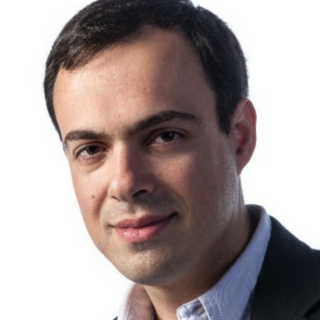
Vice-Dean and Professor, National School of Public Health (ENSP) – NOVA University, Portugal
As a health systems researcher, Eva desires to find and implement safe and sustainable healthcare delivery models globally through co-creation and smart technologies and digital solutions.
She has 15 years experience in health systems research, currently working as Senior Researcher at the Centre for Digital Health and Social Innovation at the University of Applied Sciences. Her main task is to build a research group in Inclusive Digital Community Care. Prior to taking up the position in January 2023, she worked at the Institute for Health and Society, University of Oslo, on IMI2 projects Gravitate Health and BEAMER project. Eva, is also an associate professor working on task shifting, digital health, ethics in AI and digital health literacy at the University of South- Eastern Norway.
Her research has been focused on person centred care, digital health, patient safety, health technology assessment and quality of life. She teaches EBM, HTA and Public Health at the Medical Faculty, University in Maribor and is Public Health delegate with the Emergency Response Unit at the Norwegian Red Cross.
Eva serves in the Board of Directors of HTAi, is Board member of Polytekniske Forening- Helse, Women in Global Health Norway and Austria, and was a member of the Expert Council at the Slovenian Digital Health Innovation Lab.
She holds an MBA in Healthcare Management (WU Wien) and a PhD in Health Sciences (University of Oulu). Originally from Slovenia, she has studied, lived and worked in Austria, Japan, Finland, Spain, Argentina, Syria and Norway.
Apart from the healthcare expertise, Eva is passionate about the sustainable development and the SDG’s, in particular SDG 5, Gender Equality. As the President of Professional Women’s Network Norway, she was contributing to raising awareness about gender balanced leadership.

Policy Officer, European Health Management Association, Belgium
Dr Matthias Wismar is a Programme Manager at the European Observatory on Health Systems and Policies based in Brussels. His work focuses on health policy, politics and governance, the health workforce, European integration and intersectoral action and the Sustainable Development Goals. He is developing studies, policy briefs, rapid responses and face-to-face dissemination and knowledge brokering formats, including policy dialogues, evidence briefings and webinars. Dr Matthias Wismar holds a PhD in Political Science from Goethe University Frankfurt, Germany.
Prof Dr Ronald Batenburg is trained as a Sociologist and obtained his Masters at Utrecht University and his PhD at Groningen University, the Netherlands. How job structures evolve within economies, sectors and organisations, and how these determine the quality of work of professionals are the central questions he worked on at different universities and research institutes. As of 2009, he is Program Leader at the Netherlands Institute for Health Services Research (Nivel) and specialised in the area of human resources for health. The main projects he leads concern the labour market, work and education in health. This includes how institutional reforms, organisational development, task delegation and substitution change job structures and the work of healthcare professionals. From a policy perspective, he evaluates how healthcare policy and management – in particular (strategic) health workforce planning – can improve the alignment between healthcare demands and the critical supply of human resources for health. Since 2017, Ronald is Endowed Professor in health workforce and organisation studies at Radboud University Nijmegen, Department of Sociology.

Research Assistant; Deputy Director, Center for Health Workforce Research and Policy, Babeș-Bolyai University; and EUPHAnxt Coordinator, European Public Health Association (EUPHA), Romania
Dr. Carlo Descovich has been the Director of Governance, Research, Education and Quality Improvement Unit of Bologna Health Authority since 2015. Dr. Descovich has started coordinating the same Unit in 2008 and since then he has led several projects on clinical and organizational research and audits as well as on the implementation and monitoring of best practiced. His activity has also been focused on quality improvement initiatives across the entire organization, among which the implementation of international accreditation program in partnership with Accreditation Canada over the last three years.
Over the last 25 years, Dr. Descovich has been a co-author of several publications on the topics of Evidence Based Practice, Clinical Governance, Research Methodology and his been a regular lecturer at local Universities on his main areas of expertise.
In addition to his specialization in Medicine, Dr. Descovich holds two Master’s degrees, the first one in “Promotion and Governance of Research” and the second one in “Healthcare Politics”.
Prof Scott L. Greer is a Professor of Health Management and Policy, Global Public Health, and Political Science (by courtesy) at the University of Michigan and is also a Senior Expert Advisor on Health Governance for the European Observatory on Health Systems and Policies.
He researches the politics of health policies, with a special focus on the politics and policies of the European Union and the impact of federalism on health care. Before coming to Michigan, he taught at University College London. He has published over a hundred book chapters and articles in journals including the Lancet, British Medical Journal, Milbank Quarterly, American Journal of Public Health, Social Science and Medicine, Journal of European Public Policy, Journal of European Social Policy, and Journal of Health Politics, Policy and Law. His most recent books include Everything you always wanted to know about European Union health policies but were afraid to ask (2014, second edition 2019, third edition forthcoming), Strengthening health system governance: better policies, stronger performance (2015), Federalism and Decentralization in European Health and Social Care (2013), European Union Public Health Policies (2013), Civil Society and Health (2017), Federalism and Social Policy (2019), The European Union after Brexit (2020), The Populist Radical Right and Health (2021) and Coronavirus Politics (2021).
Prof Dr Marija Jevtic is a full professor at the University of Novi Sad, Faculty of Medicine, specialist in Hygiene (Public Health) at the Institute of Public Health of Vojvodina with sub specialisation in medical ecology; research collaborator at the Université Libre de Bruxelles, Research Centre on Environmental and Occupational Health, School of Public Health; associate member of the Academy of Medical Sciences Serbian Medical Society; group analytic therapist and System Psychodynamic Organizational Consultant; EU Climate Pact Ambassador.
She has 25 years of experience in the research and education process and advocacy in public health and environment and health. Field of interest and work: public health, environment and health, SDGs, climate change, disaster and health, migration, mental health, school health, food safety, nutrition, health management, reproductive and sexual health, group psychotherapy, organizational consulting. As a university professor, she has been involved in different curricula development in the Faculty of Medicine at the University of Novi Sad in the field of Public Health, Nursing, Disaster medicine, Nutrition, Medical ecology, and Hygiene. She is also a professor at the Faculty of Technical Sciences University of Novi Sad (undergraduate and postgraduate studies) in the field of disaster and vulnerability, public health and emergencies, mental health and psychosocial support in emergencies).
She has been Director of the Institute of Public Health of Vojvodina; Head of the Department of Hygiene at the Faculty of Medicine, University of Novi Sad; Assistant minister Ministry of Health RS.
Dr Eszter Kovács first obtained an MSc degree in sociology at the University of Szeged in 2007. She started working as a lecturer in sociology of medicine at the Institute of Behavioral Sciences and as a statistician at the unit of Psychiatry of Children and Youth, Faculty of Medicine, University of Szeged. She obtained her PhD degree in Health Sciences at the Institute of Behavioral Sciences, Semmelweis University in 2012. Eszter works as an assistant professor at the Health Services Management Training Centre, Faculty of Health and Public Services, Semmelweis University, in Budapest, Hungary. She has participated in several international projects: Health Prometheus, European Cross-border Care Collaborations and the Joint Action on European Health Workforce Planning and Forecasting. Her areas of expertise are human resources, HRH data and related health policy issues, health workforce planning, health professionals’ mobility, cross-border health care, patients’ rights and health/medical tourism.
Iga Lipska is a Medical Doctor by education with Master of Science in public health. She graduated from the University of Utrecht in the Netherlands, where she defended her PhD thesis on health technology assessment of new medicines. Iga has broad international and Polish experience in the healthcare sector, with a main focus on HTA at national and hospital level, drug pricing and reimbursement, health insurance, public health and evidence-based decision making process in health care. She contributed her efforts significantly to the role of HTA in evidence based decision making processes on pharmaceutical reimbursement in Poland. She played a major role in HTA capacity building in Poland supporting the establishment of Polish national HTA Agency. She also contributed her leadership and networking skills to the implementation of HTA in Central Eastern Europe and internationally advising in e.g. Croatia, Moldovia, Bulgaria, Turkey.
She served in variety of managerial roles in public and private sector supporting evidence based decision making in health care in Poland and abroad. She was the Director of Drug Policy and Pharmacy Department at Ministry of Health, the Director of HTA Department at Polish HTA Agency and the Director of Control Department at National Health Fund (public payer in Poland). She negotiated pharmaceutical reimbursement prices and Risk Sharing Schemes on behalf of Minister of Health while being the Economic Committee Member. She supported the establishment of global HTA benchmarking program at Center for Innovation in Regulatory Science in London, UK.
She has been co-chairing ISPOR HTA Roundtable Europe for 3 years’ term (from 2019 to the end of 2022).
Starting June 2022 she has been co-chairing HB-HTA Interest Group at Health Technology Assessment international for 3 years’ term.
Recently she has been affiliated to Medical University of Gdańsk which is also her Alma Mater. She has just been nominated the Chairwoman of the Board at Health Policy Institute in Poland with her main role to contribute to evidence based policy in health care and build capacity in that area based on her international and national experience.
Marco Marchetti is Head of the Operational Unit of Health Technology Assessment, National Agency for Regional Health Services (Agenas). He has been appointed Co-Chair of the Member State Coordination Group on Health Technology Assessment (Htacg).
Julie Spony is Policy Officer at the European Patients’ Forum (EPF), the voice of patient organisations in Europe. In this role, she contributes to EPF’s policy and advocacy work, including leading EPF’s activities on the revision of EU pharmaceutical legislation.
Julie has a multidisciplinary background in Law, Economics and Political Science and holds a Master’s degree in European Affairs from Sciences Po Lyon (France).
Prior to joining EPF, Julie worked at the European Commission and the European Parliament, focusing on rule of law and human rights.
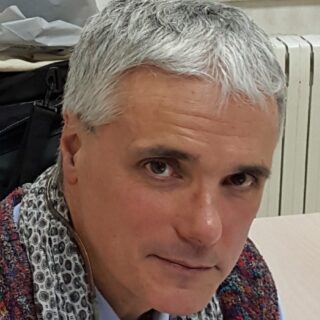
Associate Professor, Universitá Cattolica del Sacro Cuore, Italy
With more than 10 years of international experience, Yuliya Shcherbina has extensive expertise in healthcare accreditation, quality improvement, international development, project management and communication.
As Accreditation Canada’s Global Development Manager, Yuliya Shcherbina works with healthcare providers to facilitate the implementation of accreditation and quality improvement program across Europe. Since joining Accreditation Canada seven years ago, she has initiated and overseen the implementation of several accreditation projects by healthcare organizations primarily in the following countries: Italy, Croatia, Slovenia, Cyprus, Ukraine, Georgia. In this role she has guided and assisted healthcare organizations, including health systems and networks, throughout the entire quality improvement journey. She has also held several presentations, panels, and workshops at the national and international levels on topics such as value of accreditation, implementation of quality improvement processes and specific accreditation journeys in selected European countries.
Prior to her current role, Yuliya also worked for the Canadian Stem Cell Foundation, developing and managing relationship building projects between clinicians, scientists and the community. In this role, Yuliya also worked with patients to facilitate knowledge building on advancements in stem cell research and the impact of clinical trials on patient care, both domestically and internationally.
In addition to working in various EU countries and North America, Yuliya is fluent in several languages including English, Italian, French, Spanish, Ukrainian and Russian, and has a basic knowledge of German and Greek. Yuliya Shcherbina holds a Master of Arts Degree in International Relations and a Master’s Degree in Administration and Management in Healthcare.
MSc Emmanouil Tsiasiotis works as a Research Project Manager at the Università Cattolica del Sacro Cuore in Rome. Prior to this role, he worked as Project Engineer and Managing Director – Engineering Consultant. He holds a Master in Public Health from the London School of Hygiene and Tropical Medicine.
Gemma Williams is a member of the Observatory’s London hub and is based at the London School of Economics and Political Science.
Before joining the Observatory, Gemma worked as a Research Officer at LSE Health and as an ODI Fellow Health Economist in the Rwandan Ministry of Health.
Dr Matthias Wismar is a Programme Manager at the European Observatory on Health Systems and Policies based in Brussels. His work focuses on health policy, politics and governance, the health workforce, European integration and intersectoral action and the Sustainable Development Goals. He is developing studies, policy briefs, rapid responses and face-to-face dissemination and knowledge brokering formats, including policy dialogues, evidence briefings and webinars. Dr Matthias Wismar holds a PhD in Political Science from Goethe University Frankfurt, Germany.
By continuing to use the site, you agree to the use of cookies. more information
The cookie settings on this website are set to "allow cookies" to give you the best browsing experience possible. If you continue to use this website without changing your cookie settings or you click "Accept" below then you are consenting to this.